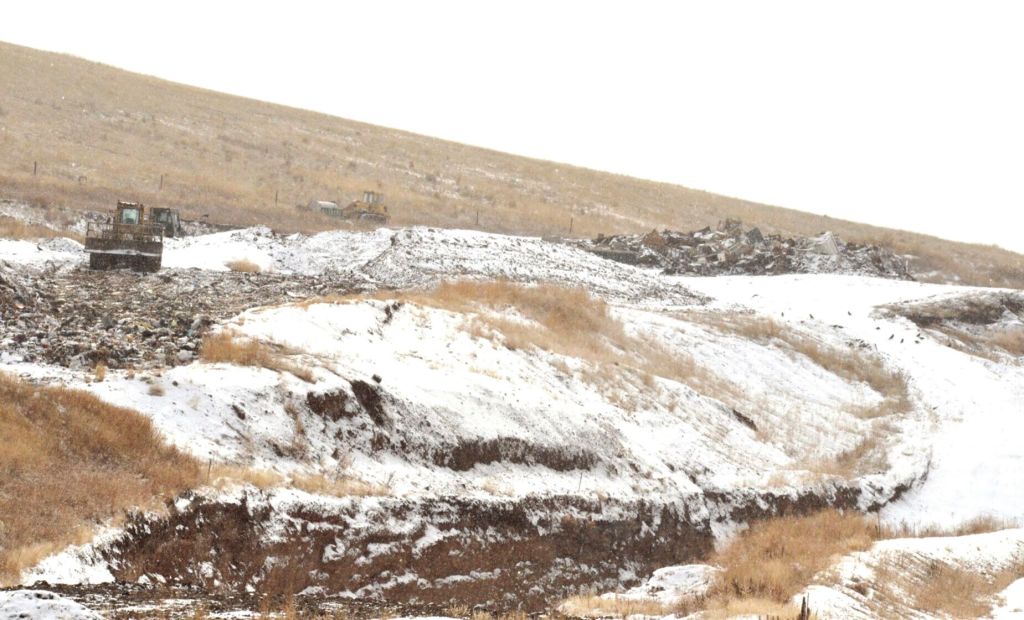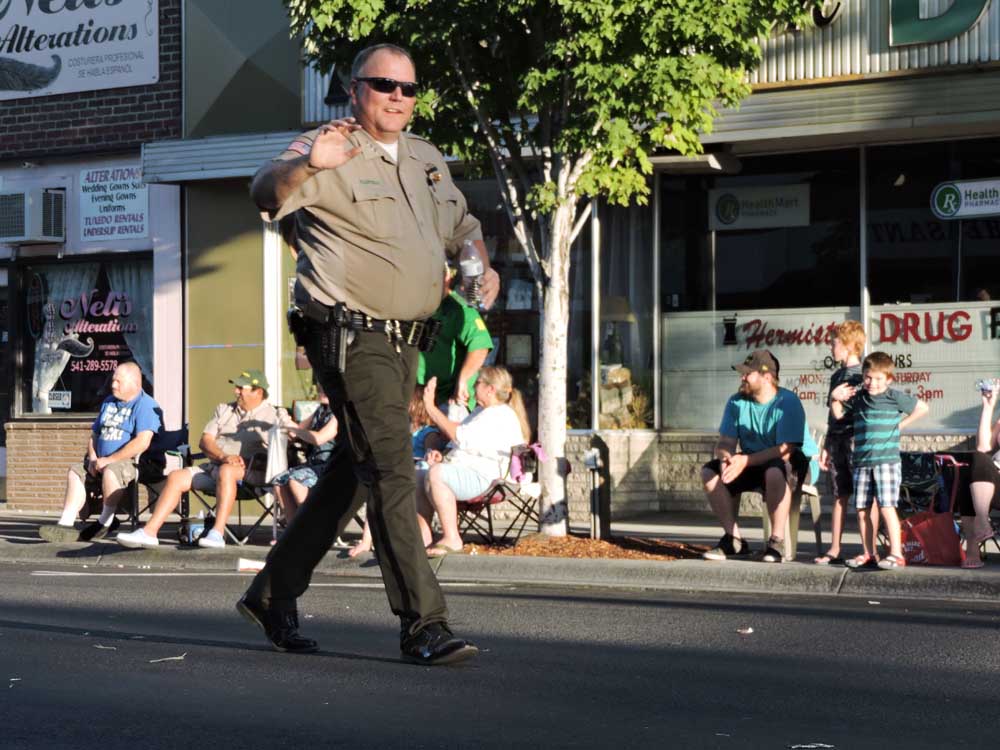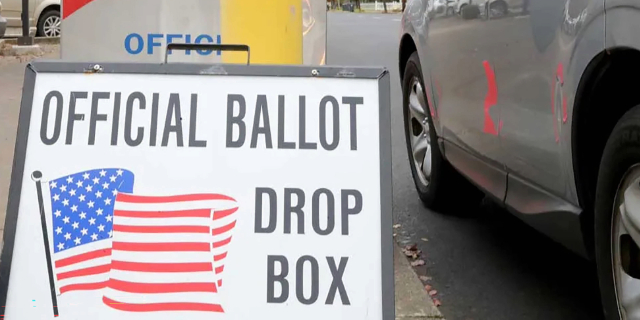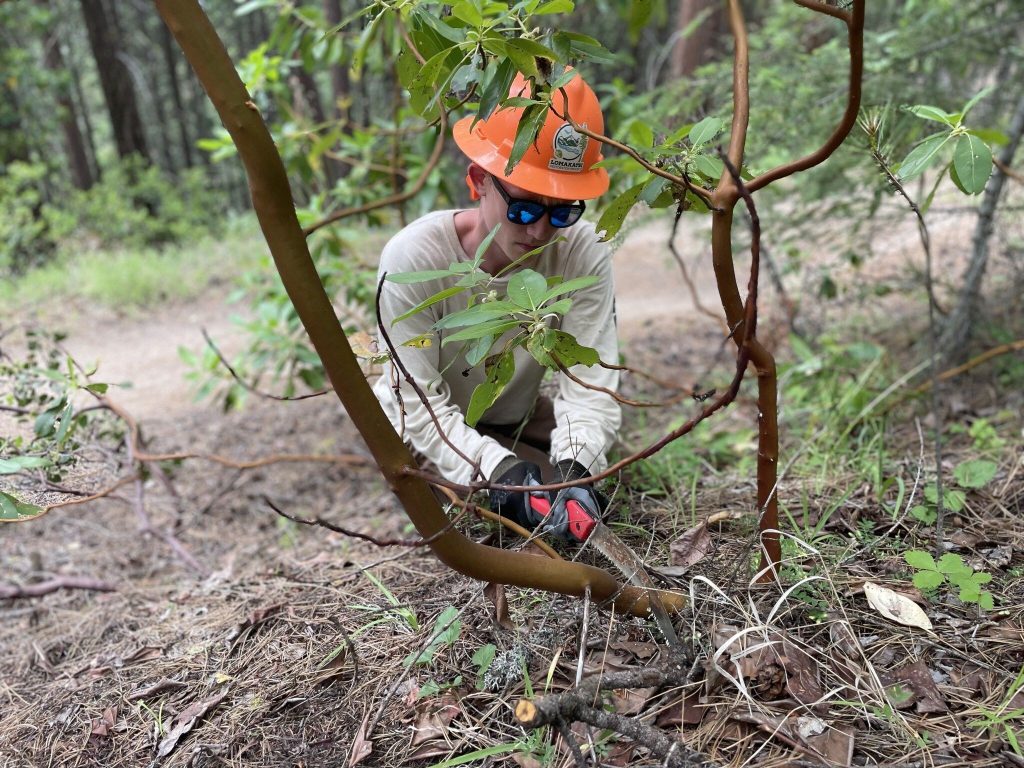Wallowa County lends more support for recycling, eyes state funding
Published 6:00 am Wednesday, January 24, 2024

- Here's where much of the waste that doesn't get recycled in Wallowa County ends up — the Ant Flat Landfill outside of Enterprise.
ENTERPRISE — The Friends of Wallowa County Recycling want to launch work on a plan to improve recycling in the county — and, at their meeting on Wednesday, Jan. 17, the county commissioners gave a tentative nod to the project, but cautioned that any plan would require public input.
Peter Ferré and Randi Jandt of the Friends thanked the commissioners for support for the past four years, “for reigniting recycling and helping to find a way to make it work for all of us here in the county.”
Ferré said he recently met with Commission Chairman Todd Nash, who suggested creating some a plan with the Friends, the commissioners and the public about how can to make recycling work better.
Having such a plan, Ferré said, might improve the county’s chance of capturing some state funding that might be available in 2025 from a measure that passed in 2021 legislative session.
He was referring to the Plastic Pollution and Recycling Modernization Act, which became effective Jan. 1, 2022 to implement recycling program changes that are to start in July 2025.
The bill aims to make recycling easier for the public, expand access to recycling services, upgrade facilities that sort recyclables and create environmental benefits while reducing social and environmental harms, such as plastic pollution. Producers and manufacturers of packaged items, paper products and food serviceware are to pay for many of these necessary improvements and help ensure recycling is successful in Oregon, according to the state’s website, oregon.gov.
“For those who don’t remember, that’s a bill that puts a slight, tiny, tiny tax mostly on plastics that will generate funds that are supposed to be shared with communities around the state,” Ferré said. “They really targeted — so they said — rural, remote communities that struggle with making recycling work because of the infrastructure costs and transportation costs.”
He said he wants to have a plan in place for when it’s the appropriate time to attempt to capture some of those state funds and believes the commissioners’ assistance will be valuable. Ferré said he has no idea how much state funding might be available.
“The simple reason why I’m here and Randi is here is to publicly ask the commissioners if they would support the Friends of Wallowa County Recycling in conjunction with the county’s help, because we would need help creating this and we would need the county’s public help, all the citizenry, in coming up with a plan,” he said. “We came up with a name of our plan, the Waste Reduction and Recycling Improvement Plan, but you can come up with another name if you want. That’s what we’ve got right now.”
Public input crucial
He also said that to having a plan could be crucial when it comes time to make a request from the state.
“We’re going to have more access to it if we can come to the state and say, ‘This is what we need; this is what we want; this is why it’s a good idea; and this is why it will help,’ as opposed to us, at the last minute, trying to come up with an idea of oh, we need a new compactor or a new grinder or something like that,” Ferré said. “Simply, I just want to ask for the commissioners’ support or approval of allowing us to work on this together.”
Nash said the public needs to be made aware of the Friends’ plans to make sure anyone who may want to be involved has the opportunity to offer input before the commissioners act on it.
“That would be a great idea to look into the future of what recycling might look like … for Wallowa County and if trucking continues to be a giant problem here,” he said.
The plan could “put us in a better position to capture some of those (state) funds, so I have no objection to that,” Nash added.
Commissioner John Hillock agreed to the benefits of a long-term approach, but also agreed that public notice is vital.
“We need to be looking long term at recycling,” he said. “We don’t have any funding to do it, but some of our citizenry has objected whenever it has ‘funding’ tacked onto it. All of those things come into play.”
Commissioner Susan Roberts agreed.
“We need to have a plan to move forward,” she said.
‘A giant challenge’
Roberts said the commissioners should put out a notice to attract any interested residents to work on a panel for the plan.
Nash said recycling plastic waste has been the biggest recycling challenge the county faces.
“At one point it was going to cost us $80 a ton to haul it away, but we did get the load hauled away for free, I think,” he said. “We did get offered $25 a ton for the remaining load, but the other load had already been committed for free and so we didn’t want to tarnish an agreement that we already had.”
Despite the cost, Nash said it’s something the county should undertake.
“Recycling is a giant challenge,” he said. “It’s going to cost us some money for the privilege of recycling. It’s the responsible thing to do if the citizenry are willing to take the action on it and I appreciate your group’s good work.”
Ferré isn’t sure when he’ll have the plan ready for the commissioners’ perusal; he said it was important to take the time to have the public and other organizations weigh in.
“We can’t just come in and say, ‘We’re doing this’ without other organizations being given the opportunity,” Ferré said.
“I don’t want to commit to the next meeting, but hopefully soon,” he said. The commissioners next meet Feb. 7.






